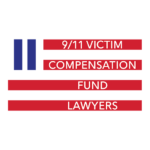Sadly, survivors of September 11th continue to be diagnosed with serious health problems. As a result, researchers are doing what they can to help. In 2014, a two-year project was awarded to establish a biorepository of cancer tissue samples from World Trade Center (WTC) responders. The stated goal of Principal Investigator Emanuela Taioli, PhD MD of the Feinstein Institute for Medical Research, was to consolidate tissue samples from all those in the WTC cohort that consented to participate. These samples would be stored in a centralized location, de-identified, and catalogued. This would allow for future research into WTC-specific mechanisms involved in cancer development, and would result in improved treatment options for WTC responders. The biorepository is now in operation at the Icahn School of Medicine at Mount Sinai.
About 575 cancers were diagnosed from September 12, 2001 to December 31, 2008 including: 22% prostate, 15% digestive system, 7% lung and bronchus, 7% thyroid, 5% kidney and renal, 5% urinary bladder, 5% breast, 4% oral cavity and pharynx, 4 % melanoma, 3% testis, 2% brain and other nervous system and 21% other. These cancers are a growing concern as more time passes since exposure and as responders age. The biorepository provides a powerful resource to aid in research efforts, particularly as it links to data kept by the WTC Health Program.
The WTC Health Program contains comprehensive clinical information, cancer treatment and outcomes, and details on environmental exposures that occurred at the WTC site. As noted by the Icahn School, “linkage between the biorepository and these existing data sets provides investigators endless possibilities for studies on cancer etiology, biology, and outcome and also gene-environment interaction.”
Researchers can apply online for cancer specific tissue samples. Requests are subject to approval by a Research Evaluation Panel (REP).
Donors of tissue samples should note that they are retained anonymously with identifying information only released with appropriate, documented consent and written approval of the Institutional Review Board.
The biorepository is an important development for WTC responders. The more research into occupational cancers, the greater the chance to treat and save the lives of those affected by September 11th.
Sullivan Papain Block McManus Coffinas & Cannavo PC has a long history with the September 11th Victim Compensation Fund and the World Trade Center Health Program. If you have questions about either program, reach out to us at (800) 962-9954 or via our contact page.
For information on medical studies related to September 11th, see our Selected Bibliography.
Share On:

